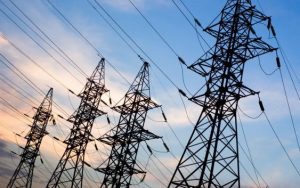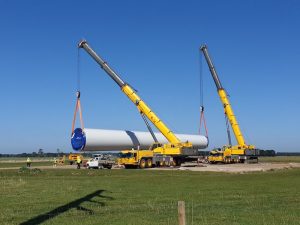Prime minister Scott Morrison appears set to use his marketing background to good use, as he works to convince the rest of the world that Australia is a global leader on climate action, despite opposing a faster clean energy transition at home.
In an early test of his newly claimed ‘acceptance’ of the need for a global shift to zero net emissions, during a call with US special envoy for climate John Kerry, Morrison deployed his old rhetoric – a reliance on dodgy stats to maintain the façade that Australia is pulling its weight on climate change.
While Morrison described the call with Kerry as “constructive”, it is clear the prime minister largely pushed the same lines he uses when speaking about climate change to domestic audiences in an attempt to convince the presidential special envoy for climate change that Australia was doing as much as its international peers to reduce emissions.
“The PM had a constructive call with US Special Presidential Envoy for Climate John Kerry this morning on the way the US and Australia will work together on technological advances that can enable us to address climate challenges and the transition to a new energy economy,” the readout issued by the prime minister’s office says.
“Australia’s strong record of meeting and beating our emissions reduction targets was recognised, noting we have reduced emissions by 19 per cent since 2005 – our benchmark year under the Paris Agreement – far exceeding the OECD average and many other advanced western economies.”
Even the use of the term “new energy economy” is a form of marketing spin, allowing the prime minister to appear to be embracing a “clean” energy transition, while not ruling out the continued use of fossil fuels.
The call with Kerry came ahead of a climate leadership summit to be hosted by the United States in April, marking the fifth anniversary of the opening of the Paris Agreement on climate change for signature, to encourage further commitments from national governments on emissions reductions.
The Biden administration is expected to use the summit to announce a new 2030 emissions reduction target for the United States and will be one newly elected president Biden’s first major attempts to foster stronger international climate change action.
However, Morrison appears unlikely to commit Australia to any stronger targets, with the prime minister telling Kerry that he is still looking to promote Australia’s historic efforts.
“The PM reiterated his commitment to reaching net zero emissions as soon as possible, and preferably by 2050 and the work that needed to be done together to achieve such a goal, while protecting jobs and livelihoods, especially in regional areas, that rely on energy intensive industries.”
“[Morrison] added that the climate discussion must importantly focus on what nations are achieving in emissions reductions to date, not just future ambition.”
That climate policy negotiations should focus on past actions is a rather extraordinary suggestion, as past efforts to reduce emissions means very little in the context of climate change, particularly when the world is not on track to limit global warming to safe levels.
But it is consistent with the Morrison government’s long-held position on Australia’s climate change targets; that past achievement should be accounted for against future targets, even if this undermines efforts to reduce emissions.
This is the argument that has underpinned the Morrison government’s quest to use surplus Kyoto Protocol units to meet future targets under the Paris Agreement. The government has still yet to formally rule out a reliance on these surplus credits, despite strong opposition both domestically and internationally.
As detailed in this article by Ketan Joshi, Australia’s current 2030 emissions reduction targets are by no means world leading, and the government’s claims to be exceeding the efforts of its OECD peers requires some very creative accounting.
Speaking at the Berlin Energy Transition Dialogue overnight, federal energy and emissions reduction minister Angus Taylor reiterated the Morrison government’s preference for focusing on its preferred technologies identified under the Technology Investment Roadmap, which includes investments in carbon capture and storage technologies.
The government has previously indicated that it intends to present the roadmap as an alternative to announcing stronger emissions reduction targets at international climate negotiations.
“Our approach will enable us to meet and exceed our 2030 commitment under the Paris Agreement,” Taylor told the conference. “Australia is a trusted energy supplier to many of the countries in our region, and if we can realise our hydrogen ambition, we will be well placed to continue supplying our partners with cheap, clean energy; to support clean growth and their efforts to decarbonise.”
Taylor made clear that it will continue to talk about its preferred technologies rather than providing any focus on higher targets.
“We welcome ambition, but practical action and achievement are what actually matter,” Taylor said.
The positions expressed by both Taylor and Morrison are not substantially different to those expressed domestically, which is both to be expected, while also being indicative of a continued avoidance by the Morrison government from strengthening its climate policies, despite growing pressure.
It also indicates that the Morrison government intends to continue to use cherry-picked or misleading figures to paint Australia as a climate leader, when in fact, it is substantially lagging behind much of the rest of the world in transitioning to a lower emissions economy.






